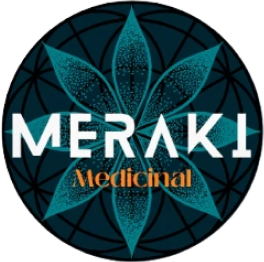Methylene Blue has emerged from its humble origins as a textile dye to become a subject of intense scientific interest for its potential cognitive enhancement properties. This fascinating compound, with its history in medical applications, is now drawing attention for its effects on brain function and long-term cognitive health benefits.
What is Methylene Blue?
Methylene Blue is a synthetic dye first created in the late 19th century. While initially used in the textile industry, its unique chemical properties led to various medical applications, from treating malaria to managing methemoglobinemia. According to research published in Frontiers in Cellular Neuroscience (Rojas et al., 2012), the compound's ability to cross the blood-brain barrier and its effects on mitochondrial function make it particularly promising for neurological applications. Today, researchers are particularly interested in its potential neuroprotective and cognitive-enhancing properties.
The Science Behind Brain Enhancement
At its core, Methylene Blue works by improving cellular energy production in the brain. It acts as an electron cycler, enhancing mitochondrial function and increasing oxygen consumption in brain cells. This process leads to more efficient energy production, particularly in areas with high metabolic demands.
Recent research has shown that Methylene Blue can:
- Enhance memory formation and retention through improved cellular energetics
- Support mitochondrial function in neurons, potentially slowing cognitive decline
- Increase cytochrome c oxidase activity, boosting cellular energy production
- Reduce oxidative stress through its antioxidant properties
Methylene Blue Long-Term Effects on Brain Health
When considering Methylene Blue's long-term effects on brain function, several key findings emerge from current research:
Cognitive Performance Enhancement
Studies indicate that regular, low-dose Methylene Blue administration may lead to sustained improvements in memory and cognitive processing. Research subjects demonstrated enhanced performance in various cognitive tasks, with effects lasting beyond the immediate dosing period.
Neuroprotective Properties
Perhaps most intriguing are Methylene Blue's neuroprotective capabilities. Long-term studies suggest it may help preserve cognitive function by:
- Supporting mitochondrial function in aging brain cells
- Reducing the accumulation of harmful proteins associated with neurodegenerative conditions
- Maintaining healthy oxygen utilization in neural tissues
- Protecting against oxidative stress damage
Memory and Learning
Chronic administration of Methylene Blue has shown promising results in memory enhancement. Regular users often report improved:
- Working memory capacity
- Long-term memory retention
- Information processing speed
- Learning ability in complex tasks
Safety Considerations and Optimal Usage
While Methylene Blue shows promise, it's essential to understand proper usage guidelines. Research indicates that the cognitive benefits follow a hormetic dose-response curve – meaning that while low doses can be beneficial, higher doses may not provide additional benefits and could potentially be counterproductive.
Recommended Dosing
Current research suggests that low doses (0.5-4.0 mg/kg) are most effective for cognitive enhancement. Higher doses may actually inhibit some of the desired effects due to excessive oxidation of the compound.
Potential Interactions
Long-term users should be aware of potential interactions with:
- MAO inhibitors
- Serotonergic medications
- Certain antidepressants
- Other cognitive enhancement supplements
Future Implications and Research Directions
The scientific community continues to explore Methylene Blue's potential in various therapeutic applications. Current research focuses on:
- Prevention of age-related cognitive decline
- Treatment of neurodegenerative disorders
- Enhancement of cognitive performance in healthy individuals
- Development of optimized delivery methods
Monitoring Long-Term Effects
For those considering long-term Methylene Blue use, regular monitoring of cognitive function and general health is recommended. This might include:
- Regular cognitive assessments
- Monitoring of oxidative stress markers
- Evaluation of mitochondrial function
- Assessment of memory and learning capabilities
The Bottom Line
Methylene Blue could be a suitable option for long term cognitive enhancement and neuroprotection. While short-term benefits are well-documented, long-term effects continue to be studied. Current evidence suggests that controlled, low-dose administration may offer sustained cognitive benefits with minimal risk of adverse effects.To get a better understanding of all the benefits, visit our article on methylene blue increasing testosterone.
Key Takeaways
- Methylene Blue enhances brain function through improved cellular energy production
- Long-term effects appear primarily positive when used at appropriate dosages
- Regular monitoring and proper dosing are essential for optimal results
- Future research continues to uncover new potential applications
Thinking about giving methylene blue a shot? Use code TRY10 at checkout for 10% off your first bottle.
Remember to consult with healthcare professionals before beginning any new supplement regimen, especially for long-term use. While Methylene Blue shows promise, individual responses may vary, and proper medical oversight ensures safe and effective use.
References
Rojas, J. C., Bruchey, A. K., & Gonzalez-Lima, F. (2012). Neurometabolic mechanisms for memory enhancement and neuroprotection of Methylene Blue. Progress in neurobiology, 96(1), 32-45. https://www.ncbi.nlm.nih.gov/pmc/articles/PMC5018244/
Note: This article is for informational purposes only and should not be considered medical advice. Always consult with a qualified healthcare provider before starting any new supplement or treatment regimen.

